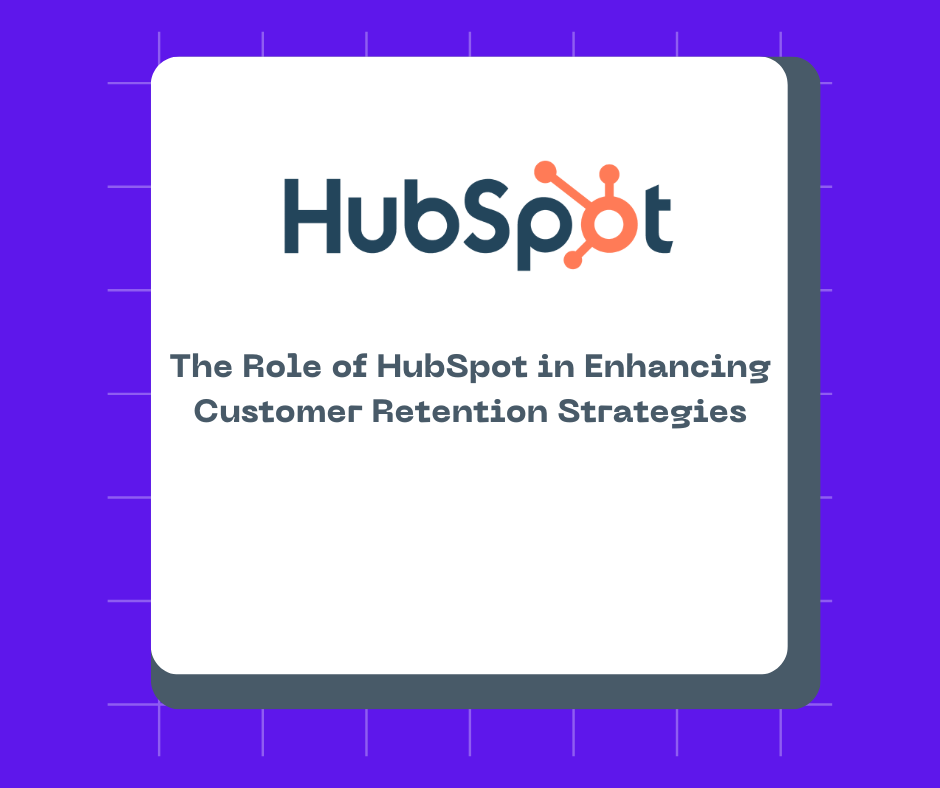In the competitive landscape of modern business, customer retention has become a critical focus for companies aiming to sustain growth and profitability. Acquiring new customers is undoubtedly essential, but retaining existing customers is equally—if not more—important. Not only do loyal customers tend to spend more over time, but they also serve as brand advocates and contribute to long-term business success. HubSpot, a leading provider of CRM and marketing automation software, plays a pivotal role in helping businesses enhance their customer retention strategies. In this article, we'll delve into the significance of customer retention, explore key strategies for retaining customers, and examine how HubSpot empowers businesses to effectively manage and nurture customer relationships for long-term success.
The Importance of Customer Retention
Customer retention refers to the ability of a business to retain its existing customers over time. While acquiring new customers is essential for growth, retaining existing customers offers numerous benefits:
- Higher Lifetime Value: Loyal customers tend to spend more over time, leading to higher lifetime value for the business.
- Lower Acquisition Costs: Retaining existing customers is typically more cost-effective than acquiring new ones, as it requires fewer resources and marketing efforts.
- Brand Advocacy: Satisfied customers are more likely to recommend the brand to others, serving as brand advocates and driving word-of-mouth referrals.
- Stability and Predictability: A strong base of loyal customers provides stability and predictability to the business, even in times of market fluctuations or economic uncertainty.
Key Strategies for Customer Retention
To effectively retain customers, businesses must implement strategic initiatives aimed at delivering exceptional customer experiences and fostering long-term relationships. Some key strategies for customer retention include:
-
Personalized Communication: Tailor communication and messaging to the individual preferences and needs of each customer, demonstrating that you understand and value their unique requirements.
-
Proactive Customer Support: Anticipate and address customer needs and concerns proactively, providing timely and helpful support to ensure a positive experience at every touchpoint.
-
Reward Loyalty: Implement loyalty programs or rewards programs to incentivize repeat purchases and encourage customers to remain loyal to the brand.
-
Continuous Engagement: Stay top-of-mind with customers through regular engagement initiatives, such as email newsletters, social media interactions, and exclusive offers.
-
Solicit Feedback: Actively seek feedback from customers to understand their satisfaction levels, identify areas for improvement, and demonstrate a commitment to continuous improvement.
The Role of HubSpot in Customer Retention
HubSpot offers a comprehensive suite of tools and features designed to help businesses enhance their customer retention strategies and foster long-term customer relationships. Some key ways HubSpot empowers businesses to retain customers include:
-
Centralized Customer Data: HubSpot's CRM platform provides a centralized repository for storing and managing customer data, enabling businesses to gain a comprehensive view of each customer's interactions, preferences, and history with the brand.
-
Personalization: HubSpot's marketing automation tools enable businesses to deliver personalized messaging and content to customers based on their interests, behavior, and stage in the buyer's journey, enhancing the customer experience and driving engagement.
-
Automation: HubSpot's automation capabilities streamline repetitive tasks and workflows, allowing businesses to deliver timely and relevant communications to customers at scale, without requiring manual intervention.
-
Customer Feedback Management: HubSpot's survey and feedback tools enable businesses to collect and analyze customer feedback, identify areas for improvement, and take proactive steps to address customer concerns and enhance satisfaction levels.
-
Reporting and Analytics: HubSpot's reporting and analytics tools provide businesses with insights into customer behavior, campaign performance, and customer satisfaction metrics, allowing them to measure the effectiveness of their retention efforts and make data-driven decisions.
Best Practices for Customer Retention with HubSpot
To maximize the effectiveness of customer retention efforts with HubSpot, businesses should consider the following best practices:
-
Segmentation: Use HubSpot's segmentation capabilities to divide your customer base into distinct segments based on shared characteristics or behaviors, allowing you to deliver targeted messaging and offers to each group.
-
Personalization: Leverage HubSpot's personalization features to tailor communication and content to the individual preferences and needs of each customer, demonstrating that you value their business and understand their unique requirements.
-
Automation: Take advantage of HubSpot's automation capabilities to streamline customer engagement initiatives, such as email marketing campaigns, lead nurturing workflows, and customer support processes, ensuring timely and consistent communication with customers.
-
Feedback Management: Use HubSpot's survey and feedback tools to gather insights from customers about their satisfaction levels, preferences, and pain points, enabling you to identify areas for improvement and take proactive steps to address customer concerns.
-
Continuous Monitoring and Optimization: Regularly monitor key metrics and KPIs related to customer retention, such as churn rate, customer satisfaction score, and repeat purchase rate, and use this data to optimize your retention strategies and improve outcomes over time.
Conclusion
Customer retention is essential for long-term business success, and HubSpot provides businesses with the tools and capabilities they need to effectively manage and nurture customer relationships. By leveraging HubSpot's centralized CRM platform, personalization features, automation capabilities, and feedback management tools, businesses can enhance their customer retention strategies and foster loyalty and advocacy among their customer base. Embrace the role of HubSpot in customer retention and unlock new opportunities for growth and success by delivering exceptional experiences that keep customers coming back for more.
Schedule your training session here and comment “Need Training” on the request form.

Comments